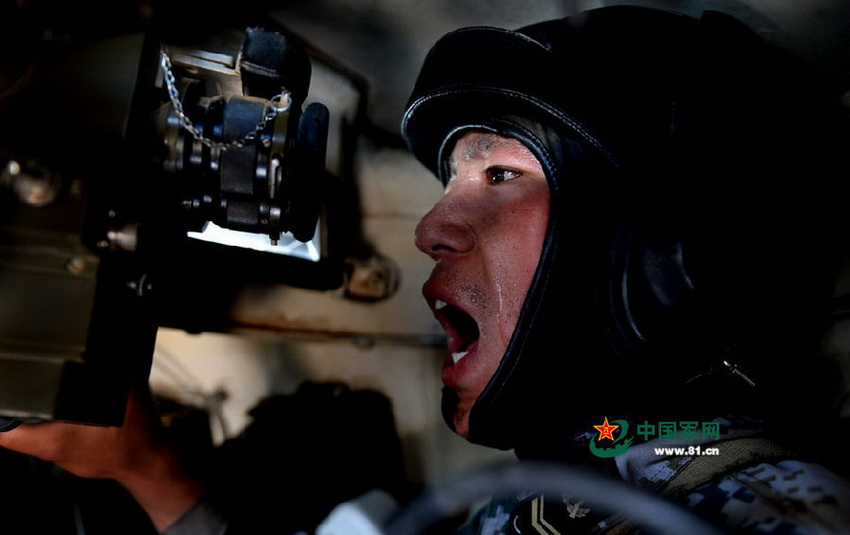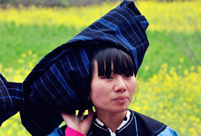 College-student-turned nun becomes famous on Internet
College-student-turned nun becomes famous on Internet
 Japanese airplanes tail Chinese warplane in China's ADIZ
Japanese airplanes tail Chinese warplane in China's ADIZ
 China applies for UNESCO listing of Nanjing documents
China applies for UNESCO listing of Nanjing documents
 Picturesque scenery in Hongcun Village
Picturesque scenery in Hongcun Village
 Japan's PM vows to resume commercial whale hunt
Japan's PM vows to resume commercial whale hunt
 Luoyang aims to become 'Chinese Culture City'
Luoyang aims to become 'Chinese Culture City'
 Century-old jade disc found confirms ancient legend
Century-old jade disc found confirms ancient legend
 A serious mind behind Chinese leader
A serious mind behind Chinese leader
 Panda Cubs to Predict 2014 World Cup Winners
Panda Cubs to Predict 2014 World Cup Winners
 China Southern Airlines flight attendants win titles in service contest
China Southern Airlines flight attendants win titles in service contest
Beijingers could live on average 58.17 years in full health, about 10 years fewer than the average in most industrialized countries, according to the top public health official in the capital.
Deng Ying, director of the Beijing Center for Disease Prevention and Control, said the first research on healthy life expectancy in Beijing, and probably in China, aims to remind the public to add quality to the quantity of life lived.
Healthy life expectancy is a relative statistic that estimates the average number of years that a person can expect to live in full health, on the basis of the current mortality rates and the prevalence of health conditions in the population.
"The study on HLE will be conducted every three years, and people should be instructed to increase healthy life expectancy and make their later years more comfortable and rewarding," he said.
"It also has implications for health planning and healthcare expenditure," he added.
In the survey, 6,040 local residents with hukou and who are aged 18 to 80 were polled in face-to-face interviews. They were questioned about eight health-related aspects, including exercise habits, pain, sleep, energy, eyesight and interpersonal relations, according to Li Gang, a researcher at the Beijing center who is in charge of the study.
Local males average an HLE of 61.4 years, longer than the 56.06 years for females, the study found.
Additionally, Beijingers in downtown areas have a slightly greater HLE than their counterparts in the suburbs, the study found.
In 2013, the average life expectancy reached 81.51 years among Beijing residents with hukou, official statistics showed.
A comparison of the HLE and the expected life span shows that "people are struggling with disabilities or diseases in later life", Li said.
He said the average life span of locals has flattened out and that increasing the local HLE has become the top priority.
Primary health risk factors, besides aging itself, include major chronic diseases such as cancer and cardiovascular conditions, the study found.
Other conditions impairing quality of life include arthritis, chronic gastritis and hypertension, it said.
"A shift to a healthy lifestyle highlighting healthy diet and more exercise could help improve personal health substantially," said Deng, the center's director, who added that medical treatment accounts for less than 10 percent of the factors that determine an individual's health.
 College girls take stylish photos to help enrollment
College girls take stylish photos to help enrollment Top 10 Chinese products scoring World Cup goal
Top 10 Chinese products scoring World Cup goal PLA units hone their tank combat skills
PLA units hone their tank combat skills Attendants shine at Xinjiang-Lanzhou high-speed rail
Attendants shine at Xinjiang-Lanzhou high-speed rail Jiuzhai Valley - fairyland of the world
Jiuzhai Valley - fairyland of the world Can't take eyes off national teams in World Cup
Can't take eyes off national teams in World Cup Beijing strips off to celebrate summer
Beijing strips off to celebrate summer
 Traditional wedding ceremony of China's Buyi ethnic group
Traditional wedding ceremony of China's Buyi ethnic group Art school students present works in Nanjing
Art school students present works in Nanjing Top 20 hottest women in the world in 2014
Top 20 hottest women in the world in 2014  China's top 10 representative architectures
China's top 10 representative architectures Cute animals' leisure summer in zoo
Cute animals' leisure summer in zoo Exhibition of the Buddha held in Tibet
Exhibition of the Buddha held in Tibet Grandpa Kang takes Gaokao for 14th time
Grandpa Kang takes Gaokao for 14th time Incredible animal migration in Xinjiang
Incredible animal migration in Xinjiang Day|Week|Month